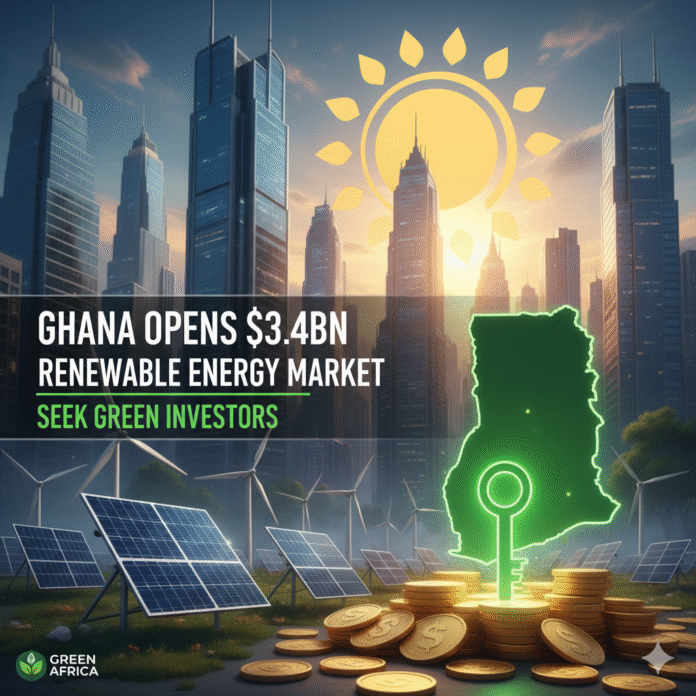Ghana has unveiled fresh investment opportunities worth $3.4 billion in its renewable energy sector as part of efforts to transition into a low-carbon economy by 2030.
Under the government’s Energy Transition Framework, the country plans to add 400 megawatts of renewable energy capacity within five years, supported by both public and private sector funding.
The planned investments include utility-scale solar, wind, and landfill gas projects, 1.5 million clean cookstoves for households, expansion of solar street lighting from 100 km to 400 km of road networks, and 400 solar-powered irrigation schemes, covering about 400,000 hectares of farmland.
The gathering organised by South Korea and Ghana sought to build partnerships, exchange expertise, and foster innovation to solve urgent challenges in climate change, food security, and sustainable energy access.
Companies from Korea took turns to make presentations on solutions, including thermal drones’ solutions for predictive management of solar energy facilities, solar monitoring solutions for Ghana’s energy transition, upland farming mechanisation with multi-purpose and off-grid renewable energy power system technology.
Mr Mahu said Ghana was positioning itself as a regional hub for clean technology production and distribution under the African Continental Free Trade Area (AfCFTA).
Businesses that are established in Ghana, he stated, would not only serve the domestic market but also have access to a continental market of more than one billion people.
Mr Mahu said the country’s electrification was above 85 per cent, stressing that renewable energy expansion would ensure both energy security and climate resilience, while driving down food inflation through solar-powered irrigation for agriculture.
According to him, 98 per cent of urban areas are connected to the national grid, while rural electrification stands at 71 per cent and is growing rapidly.
Mr Mahu noted that the government had set a target of 99.98 per cent access by 2030, positioning Ghana second only to South Africa in electricity coverage on the continent.
“This progress means that regardless of where businesses are located, they will have reliable access to electricity to run their investments,” an official said, describing it as a unique advantage for investors.
Story by :Christian Akorlie



